Fear Read online
Also by
L. Ron Hubbard
Buckskin Brigades
The Conquest of Space
The Dangerous Dimension
Death’s Deputy
The End is Not Yet
Fear
Final Blackout
The Kilkenny Cats
The Mission Earth Dekalogy*
Volume 1: The Invaders Plan
Volume 2: Black Genesis
Volume 3: The Enemy Within
Volume 4: An Alien Affair
Volume 5: Fortune of Fear
Volume 6: Death Quest
Volume 7: Voyage of Vengeance
Volume 8: Disaster
Volume 9: Villainy Victorious
Volume 10: The Doomed Planet
Ole Doc Methuselah
Slaves of Sleep & The Masters of Sleep
To the Stars
Triton
Typewriter in the Sky
The Ultimate Adventure
* Dekalogy—a group of ten volumes
For more information on L. Ron Hubbard and his many works of fiction visit www.GalaxyPress.com.
Galaxy Press
7051 Hollywood Boulevard
Los Angeles, CA 90028
FEAR
© 1940, 1991, 1992, 1995, 2000 L. Ron Hubbard Library. All Rights Reserved.
Any unauthorized copying, translation, duplication, importation or distribution, in whole or in part, by any means, including electronic copying, storage or transmission, is a violation of applicable laws.
The words MISSION EARTH and WRITERS OF THE FUTURE are
registered trademarks owned by L. Ron Hubbard Library.
BATTLEFIELD EARTH is a registered trademark owned by
Author Services, Inc., and is used with its permission.
Cover design by Peter Green Design and Mike Manoogian
© 1998 Galaxy Press All Rights Reserved
ISBN 978-1-59212-559-3 ePub version
ISBN 978-1-59212-085-7 Kindle version
Contents
Foreword
Author's Introduction
Chapter One
Chapter Two
Chapter Three
Chapter Four
Chapter Five
Chapter Six
Chapter Seven
Chapter Eight
Glossary
About the Author
Foreword
Once in a while an editor sees a story that is so finely crafted that it provides immeasurable pleasure to bring it before the reader. Fear is just such a work, and more, for it not only has great reader appeal, it uniformly inspires awe in top authors themselves. From Ray Bradbury to Isaac Asimov, it has earned rare praise as an unforgettable, timeless classic.
Written more than fifty years ago, the story has not only withstood the test of time, but additionally, it is credited by literary historians, such as David Hartwell, for transforming and creating “the foundations of the contemporary horror genre.”
Legend, too, has a habit of springing up around great works. Robert Heinlein, a close friend of L. Ron Hubbard, was fond of relating the story of how Fear was written on a single train ride from New York to Seattle.
But it is the impact on the reader that is the singular, most important test of any work. Fear delivers.
Stephen King, without question today’s master of the horror genre, says it best when he looks back at the accomplishment represented by Fear:
L. Ron Hubbard’s Fear is one of the few books in the chiller genre which actually merits employment of the overworked adjective “classic,” as in “This is a classic tale of creeping, surreal menace and horror.” If you’re not averse to a case of the cold chills—a rather bad one—and you’ve never read Fear, I urge you to do so. Don’t even wait for a dark and stormy night. This is one of the really, really good ones.
In that, he is not alone. Whether read today or reread fifty years from today, the chilling impact will never fade.
Why is this?
L. Ron Hubbard did something no other author had ever successfully done. Without the use of supernatural contrivance—werewolves, vampires; without resorting to extreme venues—the haunted house-on-the-hill, the cellar lab, the strange planet; and without using super-psychotic protagonists—Freddy Kruger, Norman Bates; he took an ordinary man, in a very ordinary circumstance and descended him into a completely plausible but extraordinary hell.
Why is Fear so powerful? Because it really could happen. And that is terrifying.
That simple premise has garnered more accolades than a thousand books of wolves howling to a pale moon on a “dark and stormy night.”
So, if you’re not afraid of the ordinary, this story is for you.
But, don’t say we didn’t warn you...
THE EDITORS
Author's Introduction
There is one thing which I wish the reader could keep in mind throughout, and that is: this story is wholly logical, for all that will appear to the contrary. It is not a very nice story, nor should it be read alone at midnight--for it is true that any man might have the following happen to him. Even you, today, might lose four hours from your life and follow, then, in the course of James Lowry.
— L. Ron Hubbard
Chapter One
Lurking, that lovely spring day, in the office of Dr. Chalmers, Atworthy College Medical Clinic, there might have been two small spirits of the air, pressed back into the dark shadow behind the door, avoiding as far as possible the warm sunlight which fell gently upon the rug.
Professor Lowry, buttoning his shirt, said, “So I am good for another year, am I?”
“For another thirty-eight years,” smiled Dr. Chalmers. “A fellow with a rugged build like yours doesn’t have to worry much about a thing like malaria. Not even the best variety of bug Yucatán could offer. You’ll have a few chills, of course, but nothing to worry about. By the way, when are you going back to Mexico?”
“If I go when my wife gives me leave, that’ll be never.”
“And if I had a woman as lovely as your wife, Mary,” said Chalmers, “Yucatán could go give its malaria to somebody else. Oh, well”—and he tried to make himself believe he was not, after all, envious of Atworthy’s wandering ethnologist—“I never could see what you fellows saw in strange lands and places.”
“Facts,” said Lowry.
“Yes, I suppose. Facts about primitive sacrifice and demons and devils— Say, by the way, that was a very nice article you had in the Newspaper Weekly last Sunday.”
The door moved slightly, though it might have been caused by the cool breath of verdure which came in the window.
“Thank you,” said Lowry, trying not to look too pleased.
“Of course,” said young Chalmers, “you were rather sticking out your neck. You had your friend Tommy frothing about such insolence. He’s very fond of his demons and devils, you know.”
“He likes to pose,” said Lowry. “But how do you mean, ‘sticking out my neck’?”
“You haven’t been here much under Jebson,” said Chalmers. “He nearly crucified a young mathematician for using Atworthy’s name in a scientific magazine. But then, maybe our beloved president didn’t see it. Can’t imagine the old stuffed shirt reading the Newspaper Weekly, anyway.”
“Oh,” said Lowry. “I thought you meant about my denying the existence of such things. Tommy—”
“Well, maybe I meant that, too,” said Chalmers. “I guess we’re all superstitious savages at heart. And when you come out in boldface type and ridicule ancient belief that demons caused sickness and woe and when you throw dirt, so to speak, in the faces of luck and fate, you must be very, very sure of yourself.”
“Why shouldn’t I be sure of myself?” said Lowry, smiling. “Did anyone ever
meet a spirit of any sort face to face? I mean, of course, that there aren’t any authenticated cases on record anywhere.”
“Not even,” said Chalmers, “the visions of saints?”
“Anyone who starves himself long enough can see visions.”
“Still,” said Chalmers, “when you offer so wildly to present your head in a basket to the man who can show you a sure-enough demon—”
“And my head in a basket he shall have,” said Lowry. “For a man of science, you talk very weirdly, old fellow.”
“I have been in a psychiatric ward often enough,” said Chalmers. “At first I used to think it was the patient and then, after a while, I began to wonder. You know, demons are supposed to come out with the full moon. Ever watch a whole psychopathic ward go stark raving mad during the three days that a moon is full?”
“Nonsense.”
“Perhaps.”
“Chalmers, I tried, in that article, to show how people began to believe in supernatural agencies and how scientific explanation has at last superseded vague terror. Now don’t come along and tell me that you can cast some doubt on those findings.”
“Oh”—and Chalmers began to laugh—“we both know that ‘truth’ is an abstract quantity that probably doesn’t exist. Go crusading against your devils and your demons, Professor Lowry. And if they get mad at you, argue them out of existence. I myself don’t say they exist. It merely strikes me strangely that man’s lot could be so consistently unhappy without something somewhere aiding in that misery. And if it is because electrons vibrate at certain speeds, or if it is because the spirits of air and earth and water are jealous of any comfort and happiness that man might have, I neither know nor care. But how comforting it is to knock on wood when one has made a brag.”
“And so,” said Lowry, slipping into his topcoat, “the goblins are gonna get me if I don’t watch out.”
“They’ll get you all right if Jebson saw that article,” said Chalmers.
The door moved ever so little—but then, perhaps it was just the cool, sweet breath of spring whispering through the window.
Lowry, swinging his stick, went out into the sunlight. It felt good to be home. The place looked and smelled good, too. For beyond the change of the seasons, there was never any difference in this town, never any real difference in the students; and when the college built a new building, why, it always looked somehow old and mellow before it was half completed. There was a sleepy sameness to the place which was soothing to one whose eyes had been so long tortured by the searing glare of spinning sun on brassy sand.
As he walked along toward his office he asked himself why he ever left this place at all. These great elms, putting forth their buds, yawning students stretched out upon the fresh green grass, colorful jackets, a mild blue sky, ancient stones and budding ivy. . . .
For the briefest flicker he half recalled the birth of his own wanderlust. A theft in his dorm, accusation, expulsion and disgrace; and three years later—three years too late to completely remove the scar—they had finally reached him to tell him that the guilty one had been found within a week after his running away. Remembering, he again felt that seep of shame through him and the shy idea that he should apologize to the first one he met.
But it passed. It passed and the air was full of spring and hope and the smell of moist earth. Clouds, hard driven high up, occasionally flashed shadows over the pavement and lawns; the breeze close to earth frisked with the remnants of autumn, chasing leaves out of corners and across lawns and against trees, bidding them vanish and make way for a new harvest later on.
No, little ever changed in this quiet and contented mecca of education. Twenty-five years ago Franklin Lowry, his father, strolled down this same street; twenty-five years before that Ezekiel Lowry had done so. And each had done so not once but on almost every day of his mature life and then, dead, had been carried in a hearse along this way. Only James Lowry had varied such a tradition and that only slightly, but then James Lowry, in his quiet but often stubborn way, had varied many traditions. He had been the first Lowry to even start to stain that scholastic name, and he was certainly the first Lowry with the wanderlust. But then he had been a strange child; not difficult, but strange nonetheless.
Reared in a great tomb of a house where no word was less than three syllables long and where the main attention paid to him was “Hush!” James Lowry had, perforce, built a universe of his own from the delicate stuff of dreams. If he cared to look in that old dean of a mansion, he knew he could find his boyhood companions tucked out of sight below the planks which covered the attic floor with indifference: Swift, Tennyson, Carroll, Verne, Dumas, Gibbon, Colonel Ingraham, Shakespeare, Homer, Khayyám and the unknown creators of myth and legend of all lands had been his advisers and companions and playmates, taking him off among discards and dust and whispering strange thoughts to him, a wide-eyed child, smear-faced with jam and attic cobwebs. But, he supposed, walking down in the warmth of the new sun, he, too, would keep on walking down this street, past these stores with pennants in the windows, past these students in bright jackets, past these old elms and ancient walls; and he, too, would probably be carried in a hearse over this pavement to a resting place beside his letter-burdened forefathers.
He was fortunate, he told himself. He had a lovely lady for a wife; he had an honest and wise gentleman for a friend; he had a respected position and some small reputation as an ethnologist. What of a slight touch of malaria? That would pass. What if men did not understand so long as they were respectful and even kind? Life was good and worth the living. What more could one ask?
A group of students passed him and two—athletes from the bars on their sweater arms—touched their caps and called him “sir.” A professor’s wife, followed at a respectful distance by her bundle-laden maid, nodded to him with a friendly smile. A girl from the library followed him with her glance a little way and without knowing it he walked the straighter. Indeed, life was good.
“Professor Lowry, sir.” It was an anemic book-delver, assistant to an assistant in some department.
“Yes?”
The young man was a little out of breath and he took a moment or two, standing there and wringing a wretched cap in his hands, the better to talk clearly. “Sir, Mr. Jebson saw you pass by and sent me after you. He wants to see you, sir.”
“Thank you,” said Lowry, turning and retracing his steps until he came to the curving pathway which led up to the offices. He did not wonder very greatly at being summoned, for he was not particularly afraid of Jebson. Presidents had come and gone at Atworthy and some of them had had peculiar ideas; that Jebson was somewhat on the stuffy side was nothing to worry about.
The girl in the outer office jumped up and opened the door for him with a muttered “He will see you right now, sir,” and Lowry went in.
Once or twice a new president had brought some furniture here and had even tried to change the appearance of this office. But the walls were older than paint and the floor had seen too many carpets pass away to shift itself much on account of a new one. Dead men stared frostily out of frames. An eyeless bust of Cicero stood guard over a case of books which no one ever read. The chairs were so deep and so ancient that they might have been suspected of holding many a corpse that they had drowned.
Jebson was looking out of the window as though his inattention there might result in a collapse of the entire scene visible from it. He did not look around, but said, “Be seated, Lowry.”
Lowry sat, regarding the president. The man was very thin and white and old, so stiff he looked more like plaster than flesh. And each passing year had dug a little deeper in the austere lines which furrowed his rather unkindly face. Jebson was motionless, for it was his pride that he had no nervous habits. Lowry waited.
Jebson, at last, opened a drawer and took out a newspaper which was partly printed in color; this he laid out before him with great care, moving his pen stand so that it would lie smoothly.
Lowry, until th
en, had felt peaceful. He had forgotten, completely and utterly, that article in the Newspaper Weekly. But even so he relaxed again, for certainly there was nothing wrong in that.
“Lowry,” said Jebson, taking a sip of water which must have been white vinegar from the face he made, and then holding the glass before his face as he continued: “Lowry, we have stood a great deal from you.”
Lowry sat straighter. He retreated to the far depths of himself and regarded Jebson from out the great shadows of his eyes.
“You have been needed here,” said Jebson, “and yet you chose to wander in some lost and irretrievable land, consorting with the ungodly and scratching for knickknacks like a dog looking for a bone he has buried and forgotten.” Jebson was a little astonished at his own fluent flight of simile and paused. But he went on in a moment. “Atworthy has financed you when Atworthy should not have financed anything but new buildings. Atworthy was not built on nonsense.”
“I have found more than enough to pay for my own expeditions,” ventured Lowry. “Those money grants were refunded three years ago—”
“No mind. We are here to develop the intelligence and youth of a great nation, not to exhume the moldering bones of a heathen civilization. I am no ethnologist. I have little sympathy with ethnology. I can understand that a man might utilize such play as a hobby, but, holding as I do that man is wholly a product of his own environment, I cannot see that a study of pagan customs can furnish any true light by which to understand mankind. Very well. You know my opinions in this matter. We teach ethnology and you are the chair in anthropology and ethnology. I have no quarrel with learning of any kind, but I do quarrel with a fixation!”
“I am sorry,” said Lowry.
“And I am sorry,” said Jebson in the tone a master inquisitor of the Inquisition might have used condemning a prisoner to an auto-da-fé. “I refer, of course, to this article. By what leave, may I ask, was it written?”
“Why,” floundered poor Lowry, “I had no idea that I was doing wrong. It seemed to me that the function of the scholar is to give his learning to those who might use it—”

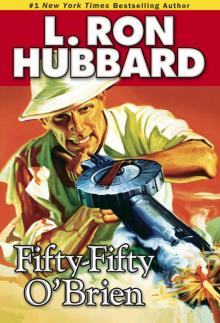 Fifty-Fifty O'Brien
Fifty-Fifty O'Brien Villainy Victorious
Villainy Victorious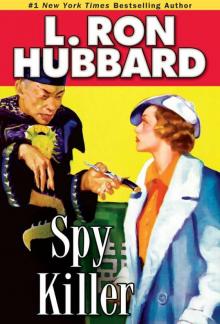 Spy Killer
Spy Killer Ai! Pedrito!: When Intelligence Goes Wrong
Ai! Pedrito!: When Intelligence Goes Wrong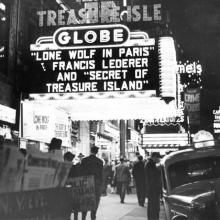 The Dangerous Dimension
The Dangerous Dimension Mission Earth Volume 1: The Invaders Plan
Mission Earth Volume 1: The Invaders Plan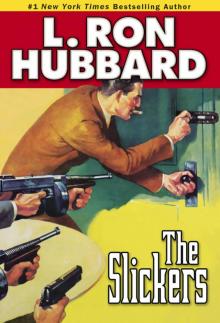 The Slickers
The Slickers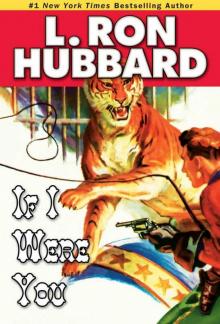 If I Were You
If I Were You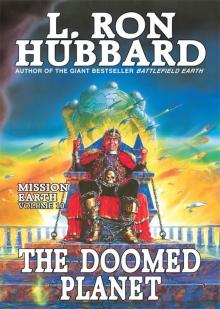 The Doomed Planet
The Doomed Planet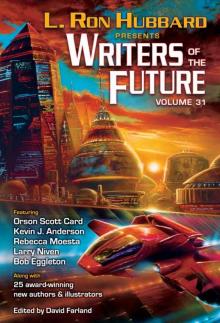 Writers of the Future Volume 31
Writers of the Future Volume 31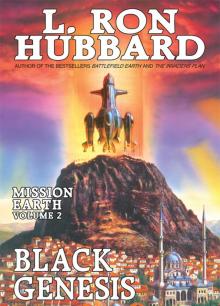 Mission Earth Volume 2: Black Genesis
Mission Earth Volume 2: Black Genesis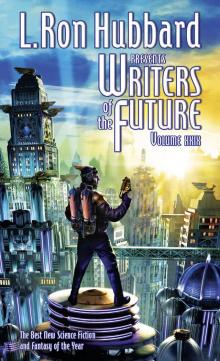 Writers of the Future: 29
Writers of the Future: 29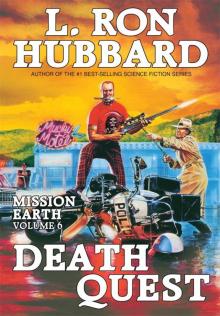 Death Quest
Death Quest The Enemy Within
The Enemy Within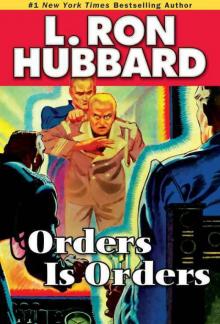 Orders Is Orders
Orders Is Orders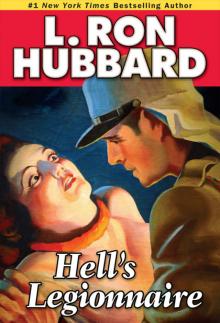 Hell's Legionnaire
Hell's Legionnaire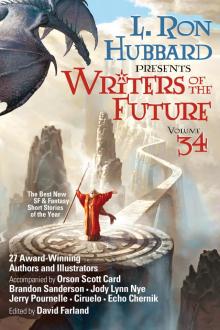 L. Ron Hubbard Presents Writers of the Future 34
L. Ron Hubbard Presents Writers of the Future 34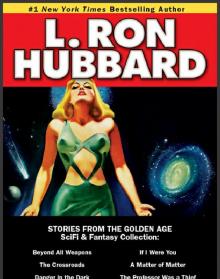 The Scifi & Fantasy Collection
The Scifi & Fantasy Collection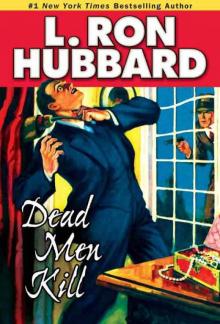 Dead Men Kill
Dead Men Kill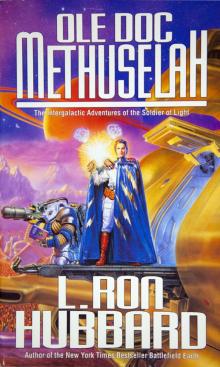 Ole Doc Methuselah: The Intergalactic Adventures of the Soldier of Light
Ole Doc Methuselah: The Intergalactic Adventures of the Soldier of Light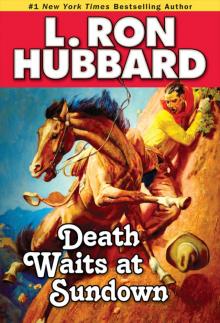 Shadows From Boot Hill
Shadows From Boot Hill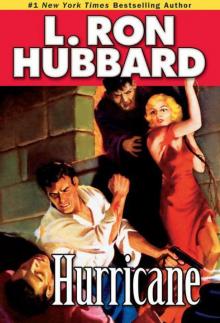 Hurricane
Hurricane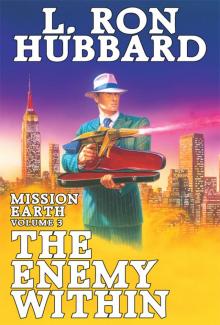 Mission Earth Volume 3: The Enemy Within
Mission Earth Volume 3: The Enemy Within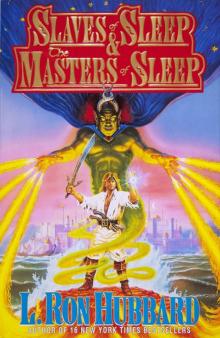 Slaves of Sleep & the Masters of Sleep
Slaves of Sleep & the Masters of Sleep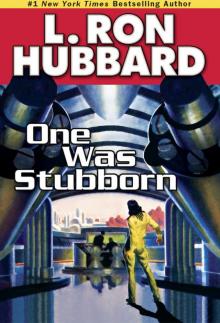 One Was Stubborn
One Was Stubborn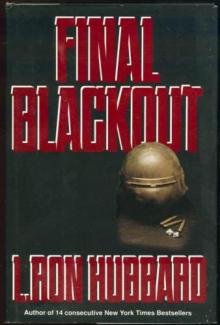 Final Blackout: A Futuristic War Novel
Final Blackout: A Futuristic War Novel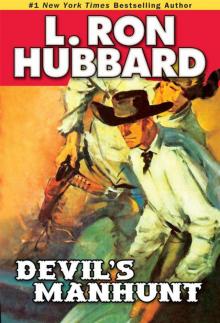 Devil's Manhunt
Devil's Manhunt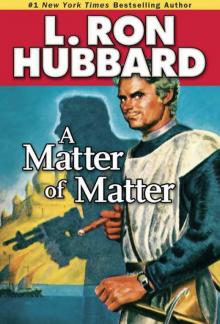 A Matter of Matter
A Matter of Matter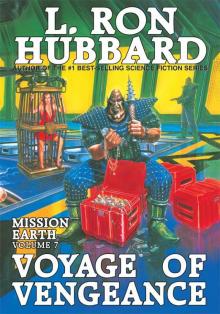 Voyage of Vengeance
Voyage of Vengeance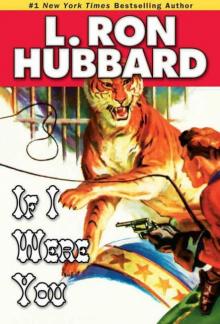 If I Were You (Science Fiction & Fantasy Short Stories Collection)
If I Were You (Science Fiction & Fantasy Short Stories Collection)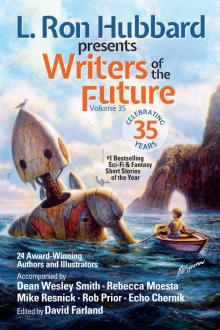 L. Ron Hubbard Presents Writers of the Future Volume 35
L. Ron Hubbard Presents Writers of the Future Volume 35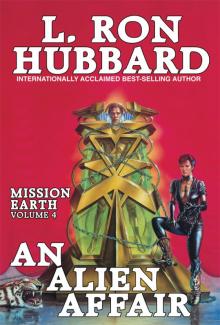 Mission Earth Volume 4: An Alien Affair
Mission Earth Volume 4: An Alien Affair Black Genesis
Black Genesis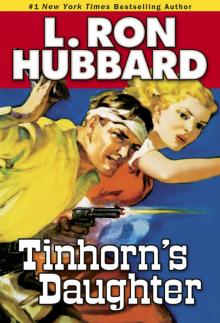 Tinhorn's Daughter
Tinhorn's Daughter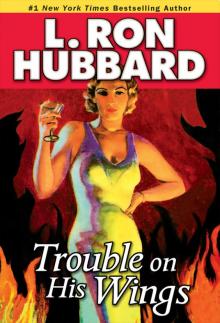 Trouble on His Wings
Trouble on His Wings Writers of the Future Volume 27: The Best New Science Fiction and Fantasy of the Year
Writers of the Future Volume 27: The Best New Science Fiction and Fantasy of the Year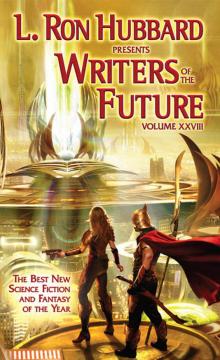 Writers of the Future Volume 28: The Best New Science Fiction and Fantasy of the Year
Writers of the Future Volume 28: The Best New Science Fiction and Fantasy of the Year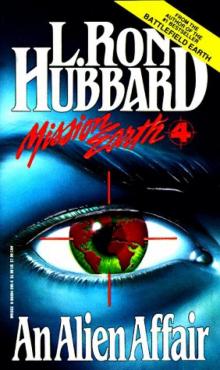 An Alien Affair
An Alien Affair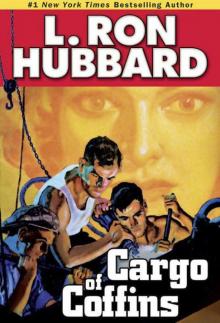 Cargo of Coffins
Cargo of Coffins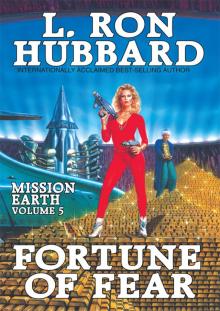 Mission Earth Volume 5: Fortune of Fear
Mission Earth Volume 5: Fortune of Fear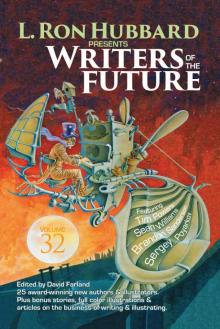 Writers of the Future 32 Science Fiction & Fantasy Anthology
Writers of the Future 32 Science Fiction & Fantasy Anthology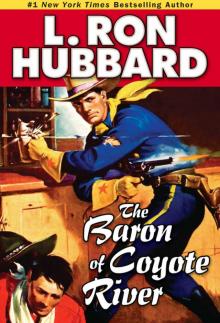 The Baron of Coyote River
The Baron of Coyote River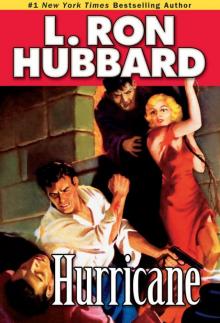 Hurricane (Stories From the Golden Age)
Hurricane (Stories From the Golden Age) Dianetics: The Modern Science of Mental Health
Dianetics: The Modern Science of Mental Health Writers of the Future, Volume 30
Writers of the Future, Volume 30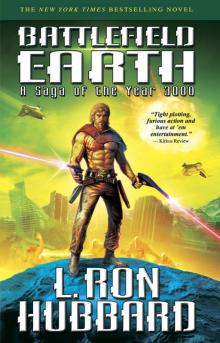 Battlefield Earth: A Saga of the Year 3000
Battlefield Earth: A Saga of the Year 3000 Fear
Fear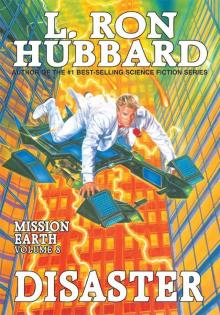 Disaster
Disaster Invaders Plan, The: Mission Earth Volume 1
Invaders Plan, The: Mission Earth Volume 1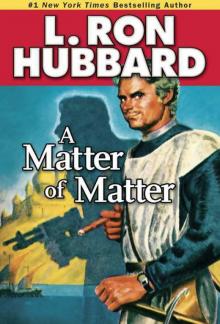 A Matter of Matter (Stories from the Golden Age)
A Matter of Matter (Stories from the Golden Age)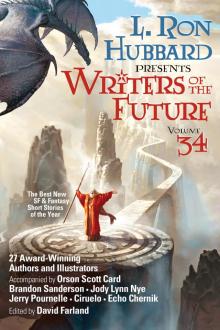 Writers of the Future Volume 34
Writers of the Future Volume 34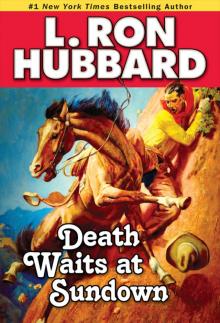 Death Waits at Sundown
Death Waits at Sundown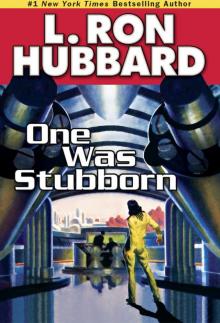 One Was Stubbron
One Was Stubbron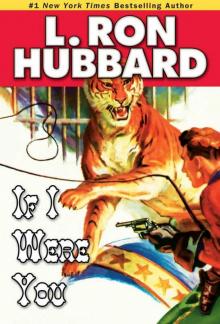 If I Were You (Stories from the Golden Age)
If I Were You (Stories from the Golden Age)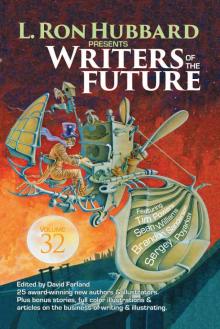 Writers of the Future 32 Science Fiction & Fantasy Anthology (L. Ron Hubbard Presents Writers of the Future)
Writers of the Future 32 Science Fiction & Fantasy Anthology (L. Ron Hubbard Presents Writers of the Future)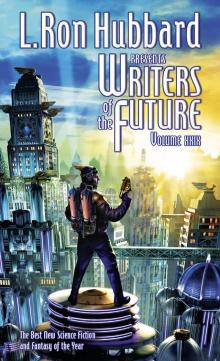 Writers of the Future, Volume 29
Writers of the Future, Volume 29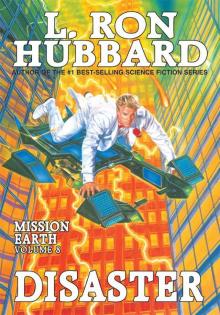 Mission Earth Volume 8: Disaster
Mission Earth Volume 8: Disaster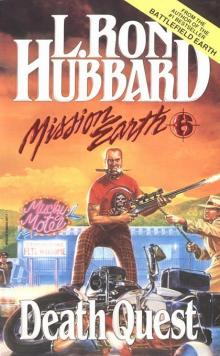 Mission Earth 6: Death Quest
Mission Earth 6: Death Quest Writers of the Future, Volume 27
Writers of the Future, Volume 27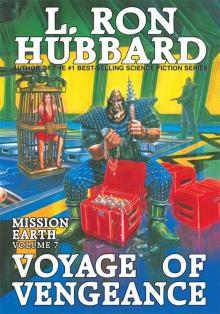 Mission Earth Volume 7: Voyage of Vengeance
Mission Earth Volume 7: Voyage of Vengeance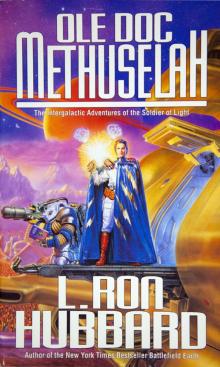 Ole Doc Methuselah
Ole Doc Methuselah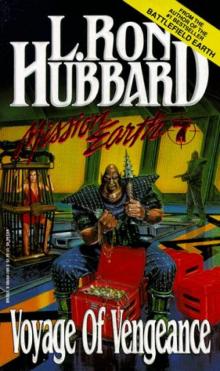 Mission Earth 07: Voyage of Vengeance
Mission Earth 07: Voyage of Vengeance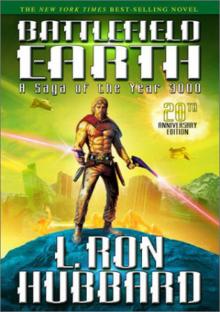 Battlefield Earth
Battlefield Earth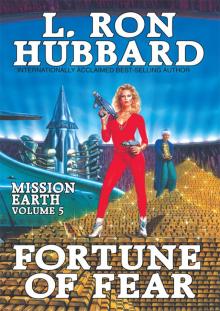 Fortune of Fear
Fortune of Fear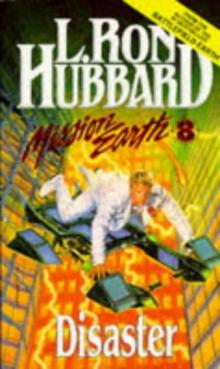 Mission Earth 8: Disaster
Mission Earth 8: Disaster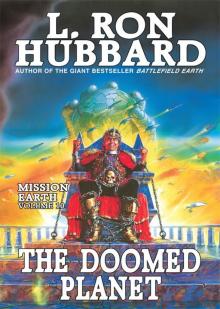 Mission Earth Volume 10: The Doomed Planet
Mission Earth Volume 10: The Doomed Planet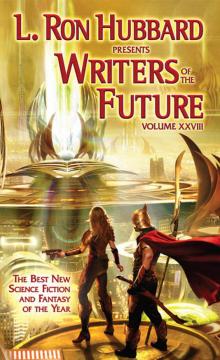 Writers of the Future, Volume 28
Writers of the Future, Volume 28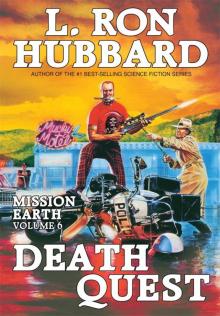 Mission Earth Volume 6: Death Quest
Mission Earth Volume 6: Death Quest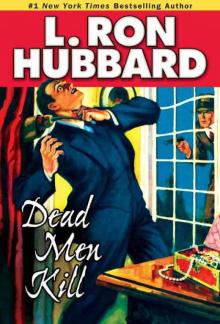 Dead Men Kill (Stories from the Golden Age)
Dead Men Kill (Stories from the Golden Age)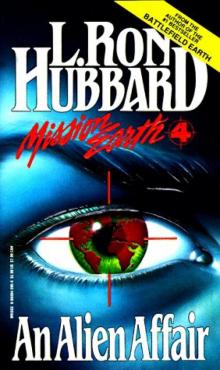 Mission Earth 4: An Alien Affair
Mission Earth 4: An Alien Affair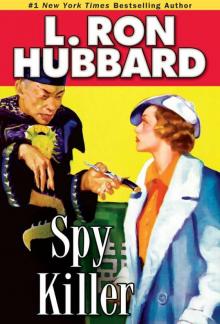 Spy Killer (Stories from the Golden Age)
Spy Killer (Stories from the Golden Age) Mission Earth Volume 9: Villainy Victorious
Mission Earth Volume 9: Villainy Victorious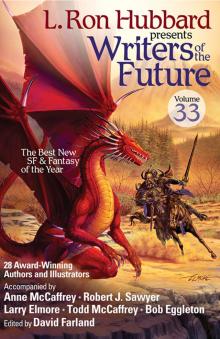 L. Ron Hubbard Presents Writers of the Future, Volume 33
L. Ron Hubbard Presents Writers of the Future, Volume 33